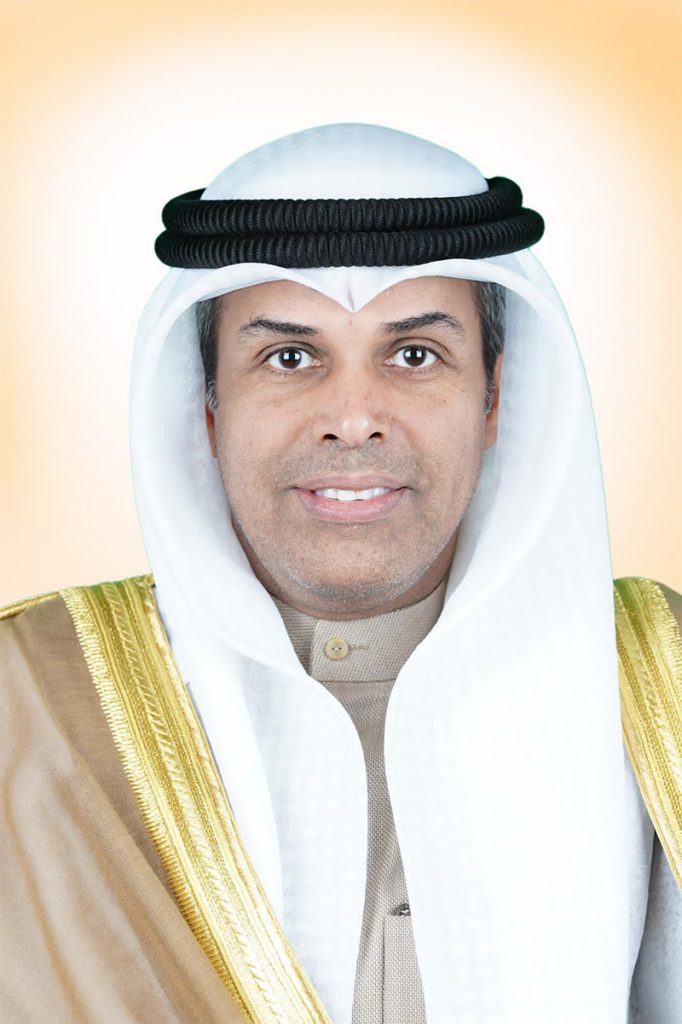
KUWAIT: Kuwait's Minister of Oil and Acting Minister of Electricity and Water Dr Khaled Al-Fadhel and Kuwait's Governor of the Organization of Petroleum Exporting Countries (OPEC) Haitham Al-Ghais are set to participate in the OPEC 180th Ministerial Meeting today and the 12th OPEC plus Ministerial Meeting tomorrow through videoconference.
Fadhel said in a statement released by the Oil Ministry that Kuwait continues its cooperation and full commitment to increase production levels according to OPEC quota in order to create a balance in the global oil markets. He mentioned that Kuwait is still playing an effective role in the negotiations and discussions, which led to the adoption of many OPEC decisions, adding that OPEC's decisions brought stability and confidence to the oil market and increasing the oil sector's contribution to the global economy.
Regarding the OPEC meeting, Fadhel said that the global oil market is looking forward to the influential role of state members to stabilize the oil market, especially in the next phase. OPEC appreciated Kuwait's role in advancing the desired cooperation between all member states in the organization in order to achieve balance and stability in the global oil market.
New deal
OPEC hosts the two meetings today and tomorrow to discuss prospects of maintaining the oil production's cut. The oil sector stakeholders are scheduled to celebrate the possibility of hammering out a new deal whether to keep the decrease of the crude output by 7.7 million barrels per day. On the table is a recommendation of the joint OPEC-non-OPEC ministerial committee to slash production in a bid to boost markets' stability. The virtual sessions coincide with OPEC's 60th anniversary and fourth anniversary of the coalition, established on December 10, 2016.
OPEC+ crude producers, in April, trimmed the output by 9.7 million bpd, 10 percent of the global demand that fell at the time due to ramifications of the coronavirus crisis. Sources close to OPEC said yesterday the conferees would seek to capitalize on the noticeable recovery of the oil prices that hit $46 pb, highest level since outbreak of the pandemic late last year. Participants in the OPEC+ gathering would look into the latest regular report by the organization that predicted demand increase for OPEC crudes next year at a rate of 5.2 million bpd as compared to 2020.
In light of this forecast, the decision makers will study duration of the output cut. Although current price remained short of the producing states' aspiration to see it at the level of $60 pb to be compatible with the price upon which their budgets had been projected, they appeared generally satisfied with the latest price level, considering the unchecked spread of the virus globally.
Observers link the price improvement to the US presidential process, high hopes upcoming mass production of vaccines will curb the contagion along with the forecast such a success will dissuade states' leaders from ordering further lockdowns giving way for restoration of normal life and recovery of industries namely those that require energy, in addition to restoration of regular air transports. Moreover in this vein, observers allude, as another factor for the prices' reasonable level; to states' latest financial incentives' policies, intended to relieve cash-strapped citizens and jobless; in the shadow of the corona crisis that paralyzed wide sectors of the businesses.
Growing reserves
OPEC Secretary General Mohammad Sanusi Barkindo has acknowledged that balancing supply and demand has become harder due to global reserves' growth by a staggering one billion bpd since start of this year. The crude reserves' glut could have been much bigger had the OPEC+ countries made no significant efforts to maintain the market balance, Barkindo believes. The producers' commitment to the output cut reached a remarkable and record level of 100 percent in November, according to many observers. Moreover, they believe that the conferees will opt to maintain the current level of the crude production in the first half of the coming year (2021).
Statistics showed that costs of facing the second wave of the virus exceeded $20 trillion, equivalent to 20 percent of the global gross product. OPEC noted in its regular report, released last week, that the demand for the OPEC crudes, in 2020, dropped by 200,000 bpd to stand at 22.1 million bpd, 7.2 million bpd less as compared to 2019. Additionally, the organization predicted in its report that this demand would reach, next year, 27.9 million bpd, some 5.6 million bpd higher than that of 2020. - KUNA











